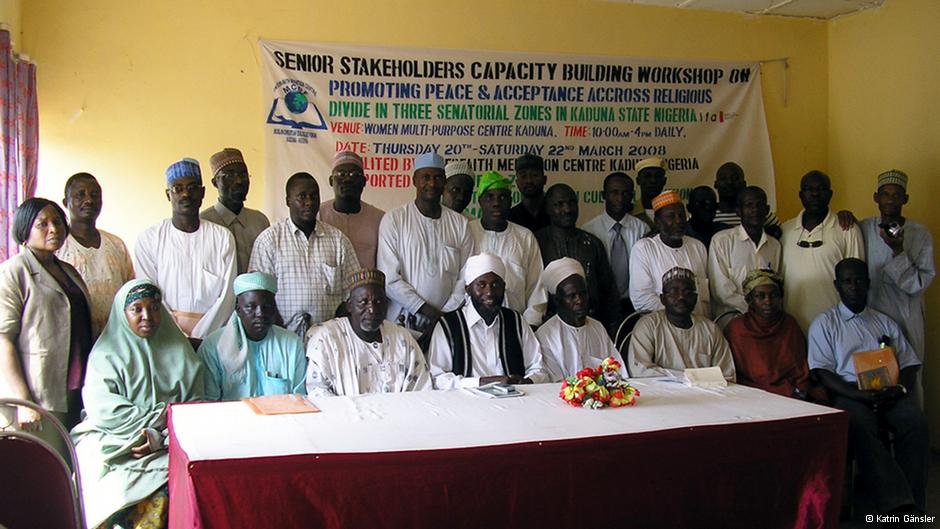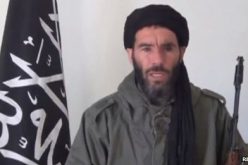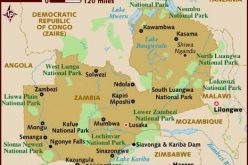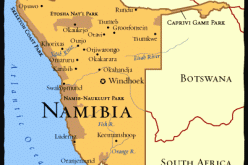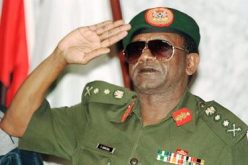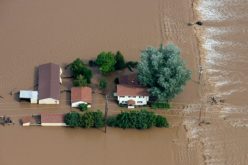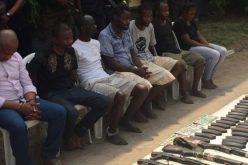They are an unusual team. An imam and a pastor have joined forces in Nigeria to work for peace in their country and for mutual respect between their religions. They are the recipients of the 2013 Hessian Peace Prize.
The peace prize awarded annually by the German state of Hessen is a highly regarded acknowledgment of achievements in the cause of peace by individuals around the world. The 2013 award goes to two Nigerian religious leaders, Imam Muhammad Ashafa and Pastor James Wuye (both pictured above).
The Muslim imam and the Christian pastor found their days were suddenly even fuller than usual following the announcement that they were the winners of the 2013 Hessian Peace Prize. The two founders of the “Interfaith Mediation Center” in the north Nigerian city of Kaduna are frequent guests on radio and TV talkshows.
They also take part in numerous workshops and conferences. Before leaving for the award ceremony in Germany, they told correspondent Katrin Gänsler how much it meant to them.
“Germany has a standard that is recognized internationally. If they tap us on the shoulder and say ‘well done’, it shows that people are listening,” said Imam Ashafa.
The two have travelled a long way to become ambassadors of peace. In the mid-1980s Kaduna acquired a reputation as the center of religiously-motivated violence between Christians and Muslims. It was not unknown for several hundred people to be killed within just a few days.
Former enemies
In the past, the two peace prize laureates also fought against each other. Relatives and friends of both were among those killed in the violence and Pastor James Wuye lost the lower part of his right arm.
The idea of working together with a Muslim was the last thing on his mind back then. A mutual acquaintance brought the two together and from that first unwilling encounter grew a close relationship which has deepened during the past 19 years.
Pastor James Wuye says they have become brothers, partners and colleagues “like a married couple that cannot be separated. We stay together, not least for the sake of our children.”
It was as a result of this feeling of responsibility for the next generation and for their home state of Kaduna and the city of the same name that the Interfaith Mediation Center was born.
The aim is to break down prejudice and strengthen trust between the two religious communities. Samson Auta has worked for the Center for several years and is proud of its contribution to the peace process.
“You learn what happens at the lowest levels and how one can intervene,” he told DW. “Most important is that ordinary people learn to resolve problems together without waiting for the government to act.”
The center played a major role in bringing peace to Kaduna for nine years. This period came to an abrupt end after the 2011 presidential election.
As it became clearer that Goodluck Jonathan, a Christian from the south, would emerge victorious, gangs of youngsters took to the streets, burning cars, houses and churches. It was not long before retaliatory attacks were launched by members of the Christian community.
This came as a huge shock to the peace ambassadors. Pastor James Wuye said he personally was not afraid in the areas where he was active as young people there knew him.
“But if I had gone to certain districts, then I would have been scared. There are people there who do not understand our work. They say to me ‘James, you are always preaching peace – but look at these people you say we should be working with. How can we ever trust them again?'”
It wasn’t just the street violence that scared people. Threatening text messages were also sent, saying, for example, that tonight Muslims would be coming to murder Christians.
Together with other peace activists, the imam and the pastor sent out messages of their own, saying violence is bad. If someone is killed, it doesn’t matter if they were christian or muslim. What matters is that a human being is dead, they wrote.
Need for genuine dialogue
Today the influence of Islamist terror group Boko Haram is having a negative impact on inter-religious dialogue in Nigeria, although moderate Muslims reject the Islamists just as strongly as the Christians do. Nevertheless there has been a noticeable decrease in the willingness of both sides to talk to each other.
In the capital Abuja, the General Secretary of the Christian Association of Nigeria, Musa Asake, shakes his head dismissively when he hears the word ‘dialogue.’ He says in general, Muslims side with Boko Haram and Christians side against the Islamists.
“The dialogue will continue and we hope it will be beneficial one day. But until we get to the point where we are very honest in our own dialogue, it will just be a waste of time,” he said.
But the peace ambassadors of Kaduna are not about to give up. Awards like the Hessian Peace Prize provide a strong motivation to continue, despite all the obstacles. Imam Ashafa says the prize from Germany is a further highlight in his life. It opens up new possibilities and also new challenges, above all the challenge to continue working for peace in a hostile environment.
The Hessian Peace Prize and its foundation was established in 1993 by the former governor of Hessen, Albert Osswald, and is endowed with 25,000 euros ($34,000). This is the first time the prize is shared by two recipients and the second time it goes to Africa.


